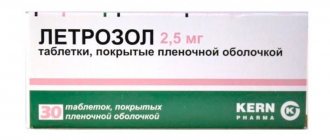Niaproff
The most frequently observed adverse events were from the gastrointestinal tract. Peptic ulcers, perforation or gastrointestinal bleeding may develop, sometimes with fatal consequences, especially in elderly patients.
The frequency parameters used below for side effects are defined as follows: often (from ≥ 1/100 to < 1/10), infrequently (from ≥ 1/1000 to < 1/100), rarely (from ≥ 1/10000 to < 1/1000 ), very rare (< 1/10000).
Blood and lymphatic system disorders
uncommon: eosinophilia, granulocytopenia, leukopenia, thrombocytopenia.
Nervous system disorders
often: headache, vertigo, dizziness, drowsiness;
uncommon: depression, sleep disturbances, inability to concentrate, insomnia, malaise.
Visual disorders
often: visual impairment.
Hearing and labyrinth disorders
often: tinnitus, hearing loss;
uncommon: hearing loss.
Heart disorders
often: swelling, palpitations; uncommon: chronic heart failure.
Respiratory, thoracic and mediastinal disorders
often: shortness of breath;
uncommon: eosinophilic pneumonia.
Gastrointestinal disorders
often: constipation, abdominal pain, dyspepsia, nausea, diarrhea, stomatitis, flatulence;
uncommon: gastrointestinal bleeding and/or gastric perforation, hematemesis, melena, vomiting;
very rarely: relapse or exacerbation of ulcerative colitis or Crohn's disease;
frequency unknown: gastritis.
Disorders of the liver and biliary tract
uncommon: increased activity of liver enzymes, jaundice.
Skin and subcutaneous tissue disorders
often: skin itching, skin rash, ecchymosis, purpura;
uncommon: alopecia, photodermatosis;
very rare: bullous reactions, including Stevens-Johnson syndrome and toxic epidermal necrolysis.
Musculoskeletal and connective tissue disorders
uncommon: myalgia and muscle weakness.
Renal and urinary tract disorders
uncommon: glomerulonephritis, hematuria, interstitial nephritis, nephrotic syndrome, renal failure, renal failure, renal papillary necrosis.
General and administration site disorders
often: thirst, increased sweating;
uncommon: hypersensitivity reactions, menstrual irregularities, hyperthermia (chills and fever).
Edema and symptoms of heart failure and increased blood pressure have been reported during NSAID therapy.
Clinical studies and epidemiological data suggest this. that the use of some NSAIDs (especially high doses and long-term therapy) may be associated with a small increase in the risk of arterial thrombosis (for example, myocardial infarction or stroke).
Undesirable effects for which a cause-and-effect relationship with the use of naproxen has not been established
Blood and lymphatic system disorders
aplastic anemia, hemolytic anemia.
Nervous system disorders
aseptic meningitis, cognitive dysfunction.
Disorders of the track and subcutaneous tissues
erythema multiforme, photosensitivity reactions like porphyria cutanea tarda and epidermolysis bullosa, urticaria.
Vascular disorders
vasculitis
General and administration site disorders
angioedema, hyperglycemia, hypoglycemia.
If you notice such phenomena, stop taking the drug and, if possible, consult a doctor.
